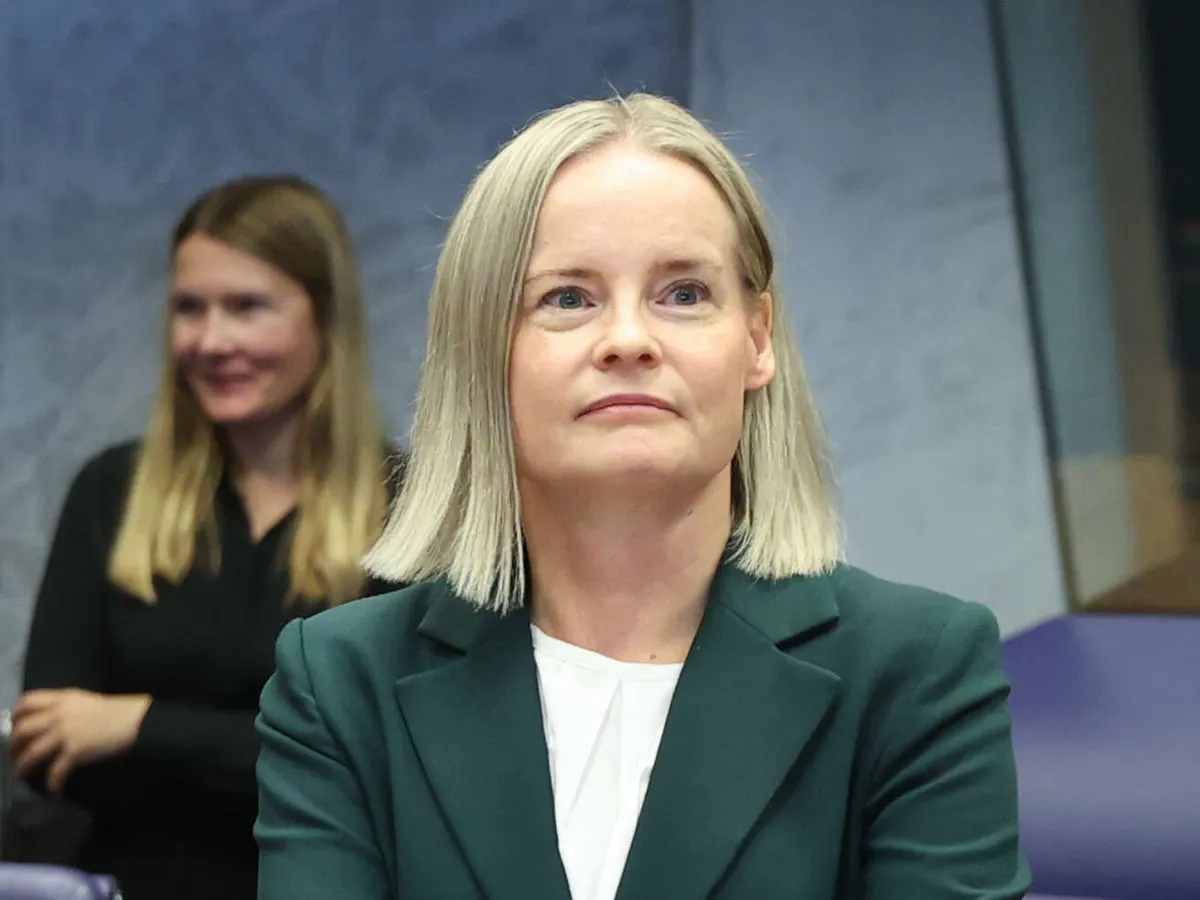The finance ministers of the European Union member states met in Luxembourg on Tuesday.
In their meeting, the ministers discussed how the proceeds of the frozen funds of the Russian Central Bank could be used to support Ukraine.
Finland was represented at the meeting by the Minister of Finance Riikka Purra (ps).
In the summer, the G7 countries reached an agreement that Ukraine would be given a loan of 50 billion dollars, the return of which would be used for the repayment and expenses of the frozen Russian assets. The assets are mainly located in Europe.
In September, the European Commission proposed legislation to establish a cooperation mechanism for lending to Ukraine. The EU’s share of the funding would be a maximum of 35 billion euros.
The decision should be made by the end of this year, so that the room for maneuver of the EU budget can be used for the loan.
Bite: Hungary slows down
The final amount of the loan given by the EU depends on how much money the other G7 countries plan to put into the mechanism. Japan, Canada and Britain have expressed their willingness to participate in it.
However, the US wants the EU to change its sanctions legislation first. The purpose is to ensure that the Russian assets remain frozen for a sufficiently long time.
Currently, the sanctions are valid for six months at a time. The Commission has proposed that the renewal cycle be extended to 36 months.
“Herein lies the problem. Changing sanctions legislation requires consensus. 26 member states are ready to move, but Hungary, the country holding the presidency, is still holding back decision-making,” Purra stated after the meeting.
He thinks that changing sanctions legislation is important.
“It is essential that the United States be included in this whole. It is seen in general, but also in euro terms, as a very essential activity.”
According to Purra, Hungary has not given reasons for its position at the meetings of the Economic and Financial Affairs Council.
“However, we know that there is a desire to wait for the US elections before decisions are ready to be made. However, we see that there is definitely a reason to hurry. Ukraine’s need for funding is absolutely acute.”
Finland does not support a new collective debt
Purra also participated in the Eurogroup meeting in Luxembourg on Monday.
In their meeting, the ministers discussed, among other things, the former prime minister of Italy Mario Draghin from the recently published report on the competitiveness of the EU.
Purra said that in his speech he brought up the fact that Finland agrees with the main diagnoses of the EU’s competitiveness problems, but does not share the view of all the proposed solutions.
“I emphasized that we are very skeptical about common industrial policy and public investments. And we still don’t want new debt-based EU instruments. The recovery tool is a temporary, exceptional and one-time solution.”
According to Purra, Draghi’s report has been covered narrowly in the Finnish media.
“It’s quite an excellent report for the most part.”
The Finnish Confederation of Business and Industry has proposed that the Union should give up mutual state aid competition and instead think about an implementation method for a financial instrument that strengthens competitiveness and investments. Its size could be around 400–500 billion euros.
CEO of EK Jyri Häkämies stated last week that he encourages the Finnish government to “constructive flexibility”.
“Experience tells us that if you like to say ‘no’, you are not in the hall doing the reform. Is it a winning position that we are right, but we are right alone,” Häkämies stated.
Purra responded to this criticism on Tuesday by stating that the government by no means says “no” to everything.
“We have clear priorities that we are ready to do both at the EU level and at the national level. We are ready to move forward quickly, for example, in completing the capital market union.”
